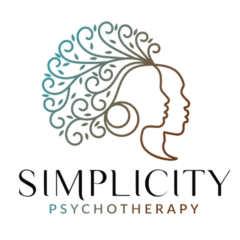When it comes to caring, there are always two extremes of givers and takes. Learning the art of minding others as you mind yourself is not always easy to master. You can either love yourself too much and neglect others or vice versa.
What Exactly does “Holding Space” Mean?
In therapeutic settings, the phrase "holding space" refers to creating a secure environment where one can sit with feelings and thoughts without passing judgment. In our interactions, holding space means accepting yourself or others for who they are at that moment.
How often have you needed a person to be there? Not to offer suggestions or point you in a particular direction, but to listen to you when you're open and honest so you may express what's on your brain and feel loved for maybe less alone the need to make things better or different.
Holding space for others
If you're a husband and a father, you'd have to hold the space for your wife and children. You must be there for them when they're unhealthy, ensuring they return to excellent health. You must make time to bond and create memories that build emotional and physical closeness.
As a friend, you intend to show interest in their progress. You share opportunities and resources that would help them grow. Finally, you must be there when the chips are down to remind them how capable they are. These are all examples of holding space for the people we care about. Unfortunately, I wonder if you may have a habit of holding space for other without remembering to hold space for yourself.

Ways that you might hold space for others include:
-
-
- Actively listening to understand what is being said and not to comment or add your knowledge to the conversation. This will help the other partner feel heard.
- Letting go of the urge to solve or "fix" someone else's issues. You may not realize how much you can learn from listening to someone.
- Reassuring the person you are keeping space for by reminding them that they're deserving and that their emotions are essential.
-
Holding space for yourself
Holding space for oneself can take many different forms and doing so enables you to safeguard your peace of mind. You are leaving aside time to focus on your needs and increase your self-awareness. You allow yourself the freedom to honestly and unapologetically be who you are.
It’s a time to pay attention to your body and mind and support yourself as best as possible. There are several ways you can practice holding space for yourself:
-
- Making time in your daily schedule to write down your feelings in a journal
- Setting a reminder on your phone to check in with your bodily and emotional health, whatever it may be, regularly from a position of loving awareness and without judgment.
- Practicing mindfulness meditation or breathing exercises
- Practicing self-kindness involves acknowledging that you are human with emotions and experiences that you should embrace rather than reject or feel wrong about.

What Makes Holding Space for Yourself Important?
While it is essential to hold space for others, show care and be responsible for others, it's vital that we look out for ourselves as well. But why is this important?
Benefits of Holding Space for Yourself
- Helps Us to Understand Ourselves Better: Looking out for yourself often means checking in with yourself too. Moments like this are when you get to know who you are. You may use this time to reflect of your actions and think of how you could be better not only to yourself but to others in your life.
- Refreshes Our Internal Bank: When you hold your own space by taking care of yourself, it serves to redirect the noise, the stress, and the tension from energy expended while holding the space for others. Trying to look out for others can be overwhelming, and we need to have a bit of quiet and refresh ourselves.
- Improves Our Relationships with Others: While we're taking care of others and trying to act like responsible mothers, wives, fathers, or friends, we need to also take care of ourselves so that our relationships with the people we care about remain healthy and supportive. Our moments of self-care help us to recharge so that we can reduce and anxiety, overwhelm, agitation, or even resentments that may come from daily interactions.
What are some of the things you can do to hold the space for yourself?
For many, self-care seems vain or an attempt to justify selfishness. At the other end of the spectrum are those who prioritize themselves at the expense of everyone else. Here are tips, from an Atlanta therapist, to help you find a balance between holding space for yourself and others.
- Develop Boundaries: Boundaries help you think of yourself and others and are essential for maintaining healthy relationships. Boundaries establish parameters within your relationships and interactions and show you are careful and deliberate about your connections. They enable you to take care of yourself without concerns about selfishness.
- Take a Vacation: When was the last time you had a vacation? Maybe forever. Taking a real break from day-to-day life where you detach from work, emails, chores, and problem solving.
- Take a Vacation Alone: Taking a break without anyone can be a game changer. Perhaps it is an opportunity to truly relinquish all responsibilities while enjoying an exciting adventure that would refresh you.
- Allow Others to Help: You do not always have to take the early lead in every circumstance. You can allow others to assist you. It makes the victory sweeter to have people celebrating with you. Besides, as the African Proverb goes; if want to go first, go alone, but if you want to go far, go together.
Your Mental Health Thrives When Take Care of Yourself

There are benefits to lending a hand or offering your shoulder. Your brain releases feel-good chemicals that enhance happiness, satisfaction, calmness, and motivation. Helping others also helps you appreciate what you have got going on in your life.
Taking care of others - a stranger in the street or a needy friend - creates a current of kindness, which often comes back to you. However, there should be a balance between holding spaces for others and yourself. A balance creates a healthy trajectory for you to be a better person to yourself and those you care about.
As you hold space for others, keep in mind that it's a good idea to arrange a time for yourself to hold space and process any emotions you might be experiencing.
Each encounter is unique. Holding space can be either a quick and straightforward path to self-awareness or considerably more profound. The goal here is to honor every path, including yours, without passing judgment.
Get Support Holding Space for Yourself Through Online Therapy in Atlanta, GA
If you want support as you hold space for yourself Simplicity Psychotherapy can help in a therapeutic setting. Our Atlanta therapists can help guide you as you process your emotions. Just take the first step...
-
-
- Contact us with any questions & receive a free consultation
- Schedule your first in-person or online therapy appointment
- Start honoring your path without judgment
-
Other Therapist Services in Atlanta, GA
Through online therapy, you can receive a variety of services. That includes anxiety therapy, depression therapy, LGBTQIA+ therapy, and trauma therapy. As well as therapy for Black men and therapy for Black women. Beyond individual therapy, you can receive relationship counseling, Prepare/Enrich, and couples therapy.

I’m Rayvéne Whatley a Licensed Professional Counselor in Georgia, Louisiana, and Texas. I enjoy empowering you to remove the mask of other people’s expectations and have the audacity to be yourself. I have a particular passion for Black man and women cope with anxiety and challenge expectations by reexamining beliefs that no longer suit their desires.
Note: While the information above is intended to provide insight as you begin your journey they are not intended to replace the guidance of a trained professional. Exploring these concerns in the presence of a licensed counselor or other licensed professional may provide deeper insight and assist in managing more multifaceted concerns that may arise.

